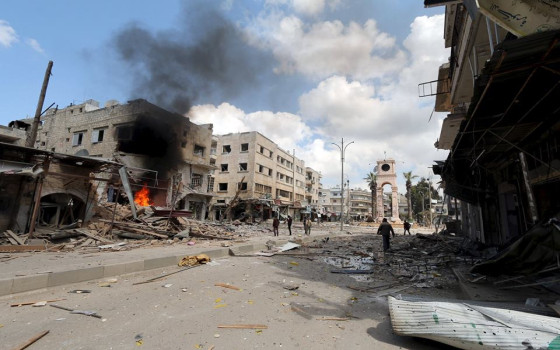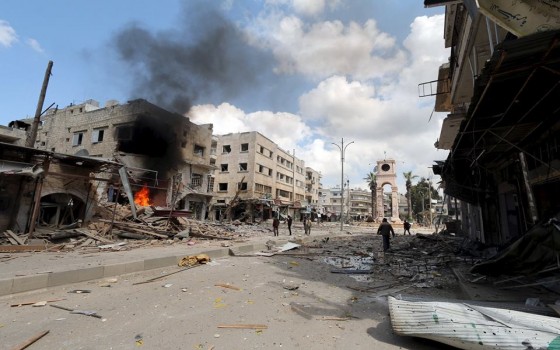
UNSMIL: Viable Options for Holding Elections and Ending the Transition in Libya

- Europe and Arabs
- Saturday , 24 May 2025 10:0 AM GMT
Tripoli - New York: Europe and the Arabs
The United Nations Support Mission in Libya (UNSMIL) has published the final report submitted by the Advisory Commission, which presents technical and political options aimed at "breaking the chronic political stalemate" that is hindering the holding of national elections in the country and ending the transitional phase.
The Mission established an Advisory Commission composed of 20 prominent Libyan figures representing various regions and backgrounds, pursuant to Security Council Resolution 2755. The Commission was tasked with proposing workable solutions to resolve contentious issues with the aim of helping Libya unify its institutions and move toward peace and stability, in light of the deepening political division, institutional fragility, deteriorating economic conditions, and growing public discontent with the status quo. According to the UN daily news bulletin, the committee held more than 20 meetings over three months, all within Libya, and focused its work on assessing the constitutional and legal framework governing the electoral process in Libya. It also sought to identify legal ambiguities, structural deficiencies, and political obstacles to holding national elections.
The committee identified the main contentious issues in the current electoral framework and proposed recommendations and options to address them. Among the proposed solutions were separating the results of the parliamentary elections from the presidential ones and delinking them from each other, and staggering presidential and parliamentary elections to resolve the political and logistical problems arising from holding them on the same day, but within a specific and strict timeframe.
It also proposed solutions regarding the eligibility requirements and the conditions for a second round of elections. It recommended increasing women's representation to 30 percent in both the Senate and the House of Representatives, and ensuring fair and proportionate representation of cultural components by at least 15 percent in the Senate, among other recommendations.
The committee presented four options for a potential roadmap. To end the transitional period, including holding simultaneous presidential and legislative elections, holding parliamentary elections first followed by the adoption of a permanent constitution, adopting a permanent constitution before the elections, or establishing a political dialogue committee based on the political agreement to finalize electoral and executive authority laws and a permanent constitution.
In this context, the Special Representative of the Secretary-General for Libya, Hannah Tetteh, considered the report "a starting point for a comprehensive national dialogue on the best ways to overcome the political impasse." She emphasized that the ultimate path forward will be determined "through dialogue with Libyans, ensuring that all perspectives are considered." She stated that it is essential that this path be not only Libyan-led but also "enjoy broader Libyan support."
Ms. Tetteh emphasized that legal reforms must be accompanied by "genuine political commitment" and urged all parties "to seize this opportunity to engage constructively, in a spirit of compromise, with the needs of the Libyan people first."












No Comments Found